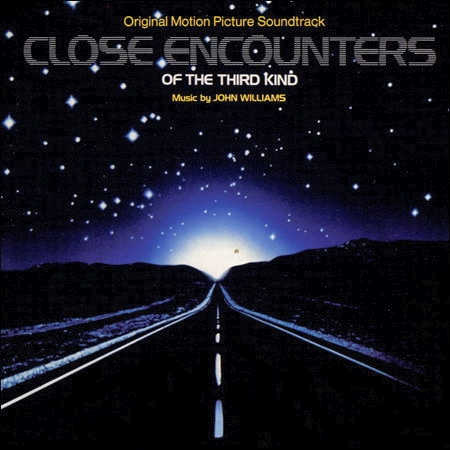 Amir, welcoming you back to Team Top Ten! We are returning after a long hiatus with not one, but two top ten lists for April. In connection to our theme of the week, Artificial Intelligence on the big screen, we are here to celebrate science fiction cinema. As with the horror genre and to help ourselves a bit by narrowing down our options, we're cutting the list in two halves. Our dividing point is 1977, when two of the cinema's most enduring science fiction films were released: Close Encounters of the Third Kind and Star Wars ushering in an era of huge advances in popularity and visual effects technology. And yes, those are both science fiction films and your contrarian arguments will not be heard.
Amir, welcoming you back to Team Top Ten! We are returning after a long hiatus with not one, but two top ten lists for April. In connection to our theme of the week, Artificial Intelligence on the big screen, we are here to celebrate science fiction cinema. As with the horror genre and to help ourselves a bit by narrowing down our options, we're cutting the list in two halves. Our dividing point is 1977, when two of the cinema's most enduring science fiction films were released: Close Encounters of the Third Kind and Star Wars ushering in an era of huge advances in popularity and visual effects technology. And yes, those are both science fiction films and your contrarian arguments will not be heard.
We were spoilt for choice for the second part of this poll, for the simple reason that far more science fiction films have been produced since 1977 than before it. Still, this first list is comprised of eleven films that have all become part of the canon and among the best in film history in any genre. Without further ado...
Team Experience Top Ten
Best Science Fictions Film Produced Before 1977...
=TIE 10. The Man Who Fell to Earth (1976)
The film that brought us David Bowie, Movie Star is appropriately unusual, splashy, and hard to pin down. Bowie's angular, off-puttingly beautiful face and magnetic otherworldly presence are put to perfect use in Nicolas Roeg's film, where he plays an alien come to Earth in order to get water he can return to his drought-ravaged planet, only to be undone by various earthly vices. Bringing in an outsider to shine a light on society's faults and peculiarities is not a device that wants for use, but Roeg's deployment of it is memorable and complex. It's generally considered a cult classic, but it's more earnest and melancholy than that label suggests. You may find it enchanting or you may find it frustratingly oblique, but it will stick in your brain long after it ends.
–Margaret de Larios
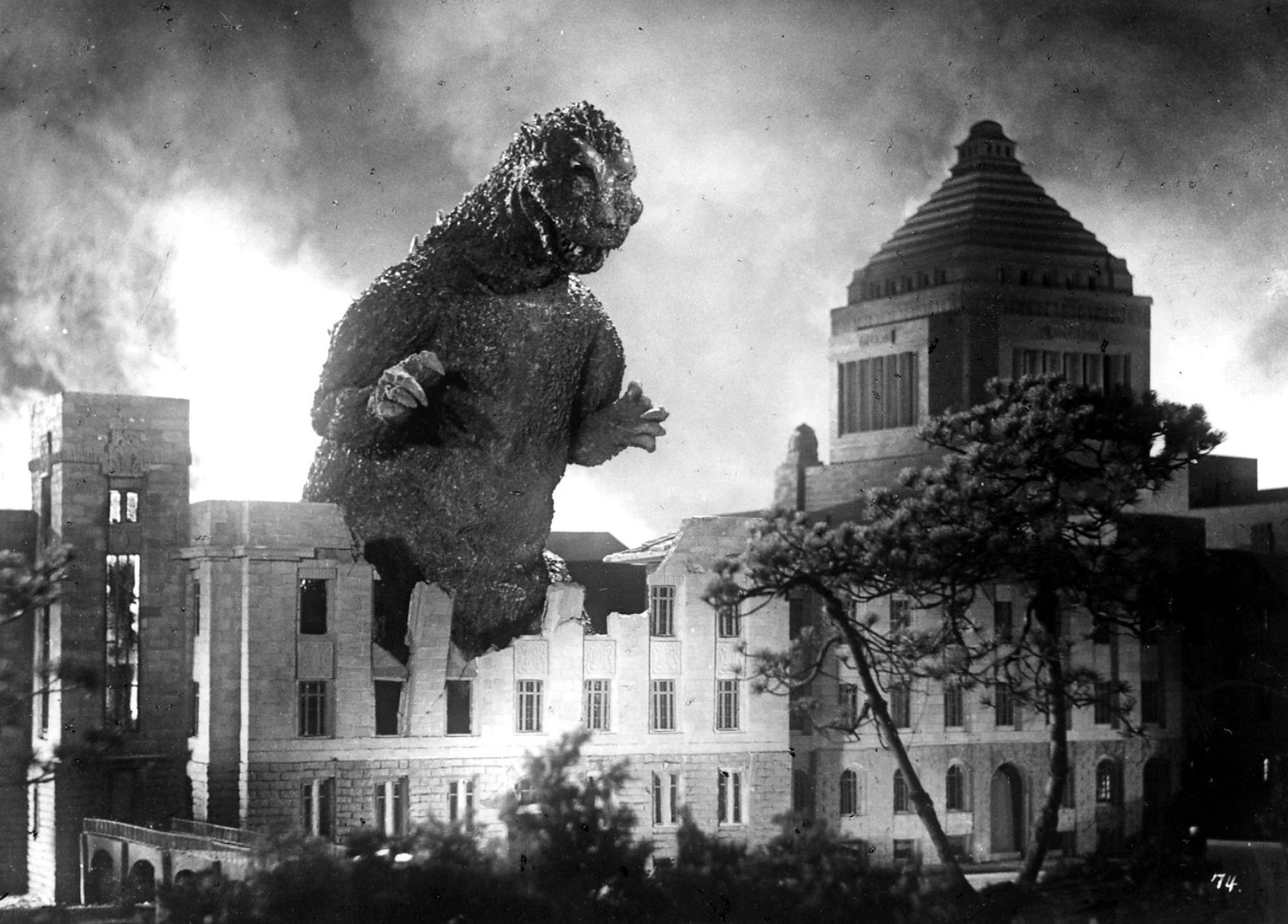
=TIE 10. Godzilla (1954)
Godzilla should not work. It's a film that happened almost by accident without much planning, and you can tell from the campy dialogues, the endless references to Hollywood monster flicks and most of all from the "cartoony", "stagey" feel of the now-legendary climax in which the giant reptile wreaks havoc on a cardboard Tokyo...and yet the film works in ways that still today seem inexplicable, miraculous even. Perhaps because of how "fake" it looks, it became an even more potent, urgent indictment of the American nuclear bombings on Hiroshima and Nagasaki, as if to say: this is what you did to us, you stomped over us as if we were made out of paper. Its "cult film" legacy and undeniable entertainment value aside, it remains one of the most powerful anti-war films ever made, a call to acknowledging responsibility, a reminder that our every action ignites an equal reaction.
–Jose Solis
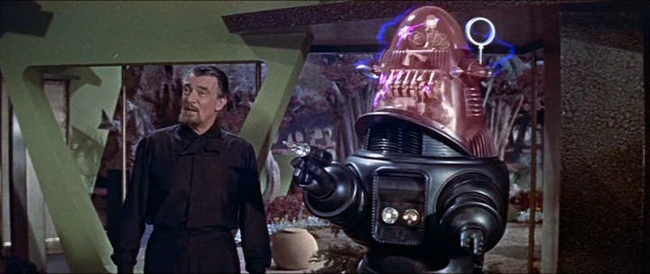
9. Forbidden Planet (1956)
I could list a whole host of reasons why Forbidden Planet is one of the most important sci-fi films ever made: It's the first mainstream film to have a totally electronic score. It's the first full sci-fi feature produced by MGM. It introduced the world to the wonderful Robby the Robot, one of Hollywood's first robots that was a complete character with a personality. Robby, in addition to the film's sets and models of spaceship C-57D, were so perfect as to be re-used in numerous subsequent features and television shows. But as to what makes Forbidden Planet one of the best sci-fi films ever made? Co-star Anne Francis credits the film's success to the fact that from the first day of the shoot, everyone involved was told to take it seriously. And it shows. No matter how ridiculous the plot gets - and it does - Forbidden Planet feels more serious and more real than just about any other sci-fi film of its era. That it's also lots of fun can only be due to that mysterious alchemy that separates merely good films from truly great ones.
–Daniel Bayer
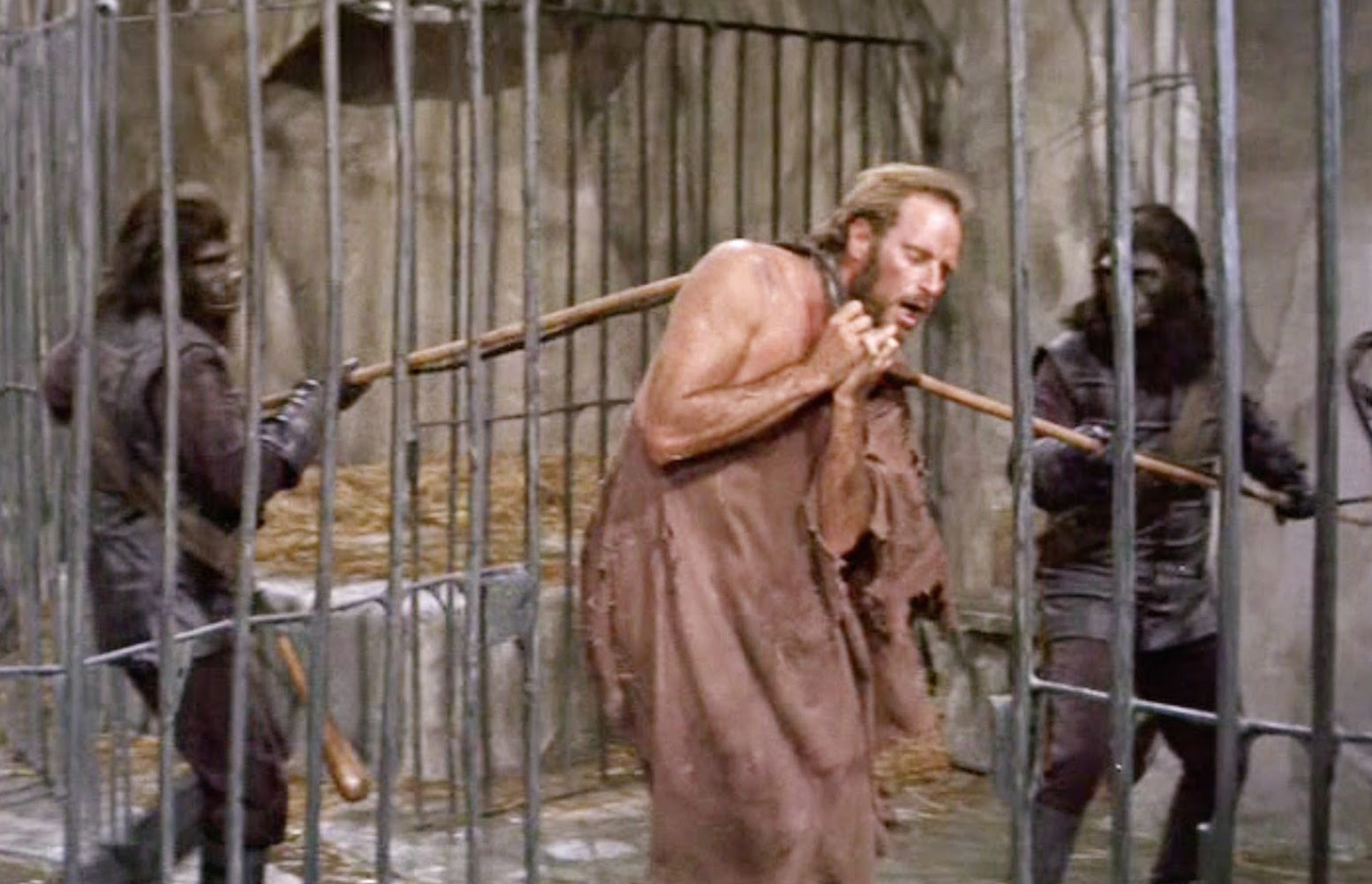
8. Planet of the Apes (1968)
An instant sensation when it first opened in the turbulent 1960s, when everything was in flux and the Vietnam war was raging, it's no accident that The Planet of the Apes is still with us today and pushing violent and environmental political buttons. Its screenplay is beautifully structured to begin with a trope so familiar "astronaut crash lands on a strange planet" that its shoulda-that-seen-coming ending, is one of cinema's greatest rug-pulling finales. One secret to its enduring appeal, long after technological advances in makeup and visual effects have rendered its once exciting makeup work awkward and limited, is surely to be found in its all ages all political stripes appeal. It paints its parable in very bold, very broad strokes, eyepopping and hooky enough for children (apes... who talk! and ride horses!), smart enough for adults, and alarmist and empathetic enough for conservatives and liberals alike.
-Nathaniel R
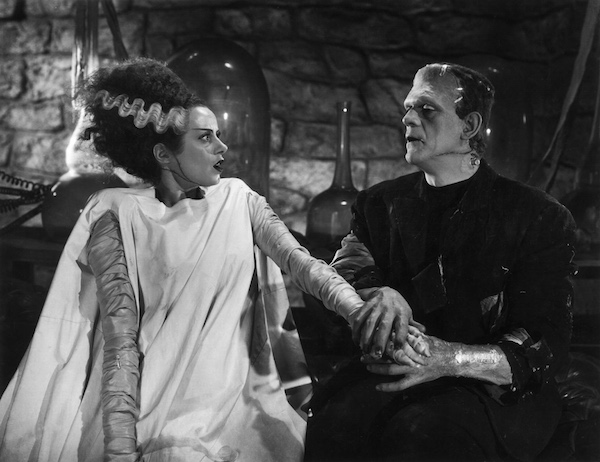
7. The Bride of Frankenstein (1935)
It’s telling that that one rarely thinks about Bride of Frankenstein as science fiction despite its main characters being scientists who spend much of the film’s brief running time rattling around laboratories tending to their deranged experiments. James Whale’s sequel, which expands on and tops his original in pretty much every way, is still a marvel in the ways it blends tones and smuggles in subtext. So while regarded by most as the iconic horror classic - and beloved as a riotous camp comedy by those in the know – Bride manages to cast a shadow over the whole of the sci-fi genre as well. Certainly no subsequent story of crazed scientific creation can avoid contending with Whale’s gothic freak show, just as all the fantastical creatures that followed are measured against the pathos of Karloff’s monster and his plaintive groans of “Friend?” as he lurches towards Elsa Lanchester’s Bride.
–Michael Cusumano
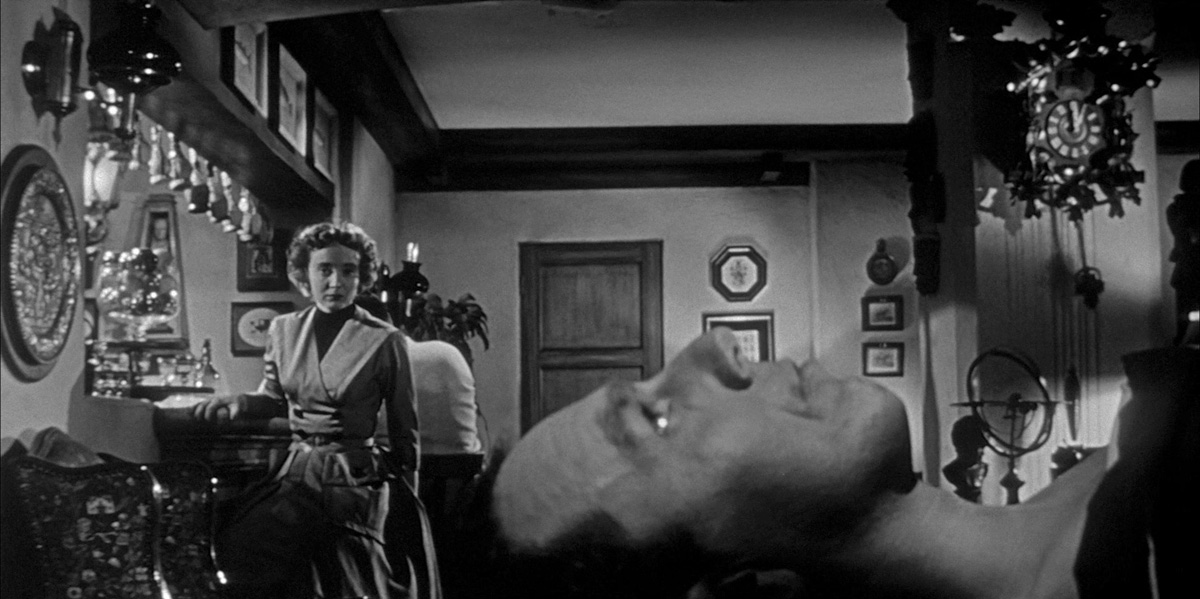
6. Invasion of the Body Snatchers (1956)
I voted for Invasion of the Body Snatchers despite having a much dimmer memory of it than I do of the more intensely neurotic, differently paranoid 1978 version or the uneven but not-uninteresting 1993 remake by Abel Ferrara. I know it's bad faith to vote for a movie I'm not even sure I've seen all the way through, although certain shots and patterns still stand out clearly, especially the heterogeneous lenses that sometimes simulate neutral reality and sometimes streamline the image into unnerving clarity or depthelessness. At times, you know why the film has suddenly shifted in look; at others, you start to worry about what's coming, or what's really happening. These impressions linger enough with me to warrant a vote, as do the many Cold War alien-invasion thrillers more generally, as does the durable currency of this particular storyline, in all its creative iterations and era-specific appropriations.
–Nick Davis
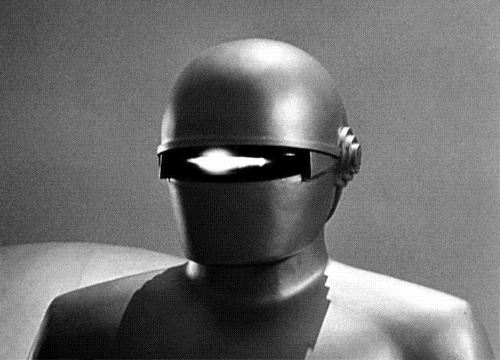
5. The Day the Earth Stood Still (1951)
“This is not another flying saucer scare,” we are told in the opening scene of the film. True to its word, what follows manages to be a keen meditation on another type of scare altogether. After a humanoid alien lands his saucer in Washington hoping to discuss Earth’s newly nuclear capabilities with all global chiefs of staff, we get a Cold War infused allegory about fear-mongering that is also, somehow a thinly-veiled Judeo-Christian parable. The Day the Earth Stood Still remains a classic of the genre not only because of its potent subtext, but also because of its recognizable imagery (giant robot Gort lasering off military guards), its memorable score (Bernard Herrmann’s sole Golden Globe nominated work) and, of course, its instantly iconic line, “Klaatu barada nikto!”
–Manuel Betancourt
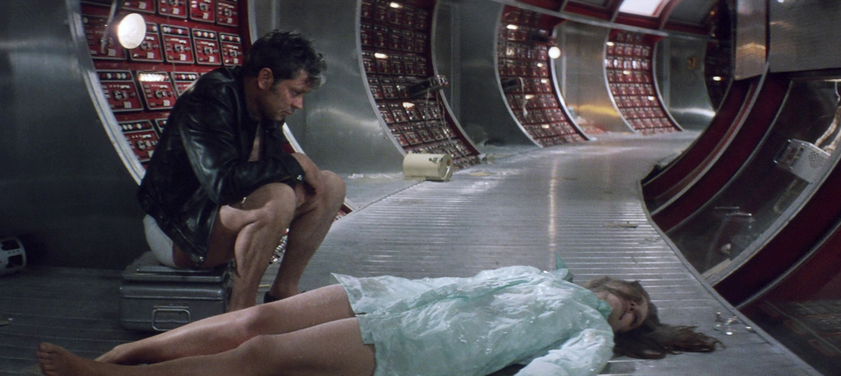
4. Solaris (1972)
Arriving just four years after 2001: A Space Odyssey, Andrei Tarkovsky's Solaris was never able to escape being compared (and contrasted) to the Stanley Kubrick picture. It's a shame, because this adaptation of Stanisław Lem's novel stands just fine on its own. In his third feature film, Tarkovsky explores humanity's existential mysteries - love, loss, grief, obsession - by sending man (Donatas Banionis) to a strange, far away world that offers an irresistible Faustian bargain (manifested in the form of his late wife, played by Natalya Bondarchuk) in an effort to communicate and understand what he himself cannot explain. It's cerebral stuff, for sure. But for the cosmic distances it spans, Solaris, through Banionis and Bondarchuk's haunting performances, remains rooted in emotion and, indeed, on Earth.
–Sebastian Nebel
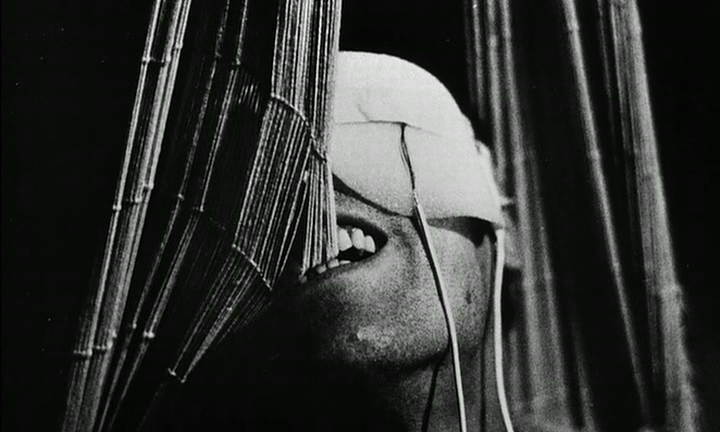
3. La Jetée (1962)
The best science fiction films are the ones that resonate emotionally; the films that unlock our imagination but grasp at something deeply internal; the ones that transcend our understanding of the world not by showing us what is beyond our physical, scientific comprehension, but by using those elements of science and fiction to arrive at worldly truths from new angles. Chris Marker’s reflection on love, grief and mortality in this photo essay is a case in point. An operatic, minimalist masterpiece, La Jetée proves that one need not have extensive visual effects, hell, even so much as simple movement, to produce outstanding science fiction cinema. In the hands of a visionary filmmaker like Marker, a simple concept – “Only in retrospect do memories become memorable by the scars they leave” – can be shaped into a film that is at once delicate and challenging, ground-breaking and heartbreaking.
-Amir Soltani
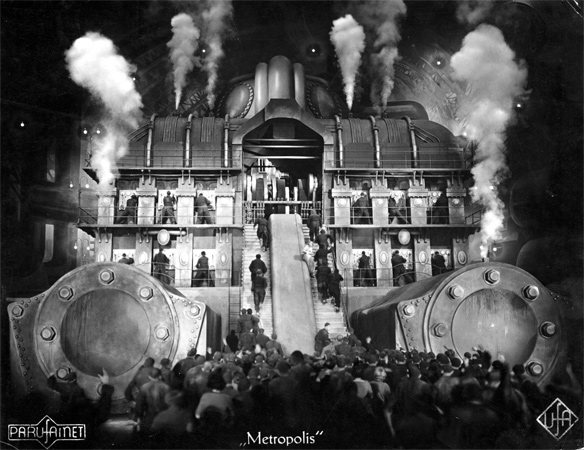
2. Metropolis (1927)
No film has cast such a long shadow over a single genre as Metropolis did for science-fiction. The design of Fritz Lang's futuristic political fable – let's nod our heads to the art directors, Otto Hunte, Erich Kettelhut, and Karl Vollbrecht, for without them this movie would be nothing – is plainly echoed in everything from C-3PO in Star Wars to the gothic Gotham of Tim Burton's Batman to fantastic worlds yet unimagined. It's a credit to the superlative organic ingenuity of the original that, 90 years of imitators later, it still feels totally unique and spectacular, a triumph of Expressionist geometry and Art Deco glitz alike. Like many a later popcorn epic, it's not without its hokey limitations as a story (it shouts its themes, it has concepts instead of characters), but its combination of immaculate world-building and feverish thriller plotting are as enthralling as anything the genre has produced since.
–Tim Brayton
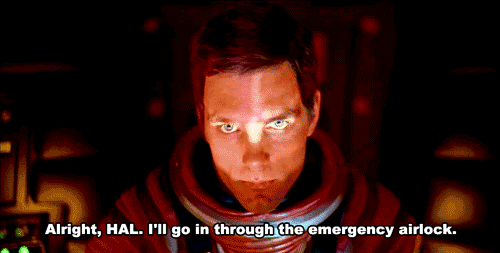
1. 2001: A Space Odyssey (1968)
Covering the entire span of human history from savannah apes inventing tools all the way to a civilization of space travelers, the film's ambition can't be faulted, even if its cryptic final 20 minutes have earned it generations of criticism. But it's just as easy to say that the film's obscurantism is part of its attempt to depict humanity transforming into something beyond human understanding, the boldest idea that can be explored in speculative fiction. Of course, 2001 presents a laundry list of classical sci-fi tropes beyond The Big One: the difficulty (and boredom) of space travel, what happens when we create an artificial intelligence so advanced that it can go crazy, where human beings fit in a future where we've made ourselves redundant. Add to that its revolutionary visual effects, and the result is the most densely packed and artistically triumphant work of cinematic sci-fi ever made.
–Tim Brayton

We'd love to hear your thoughts on these 11 classics. Are you a Robbie the Robot kind of guy or do you prefer the Body Snatchers? Apes or False Marias? Kubrick or Tarkovsky? Any others you feel should have found a place on this list?
